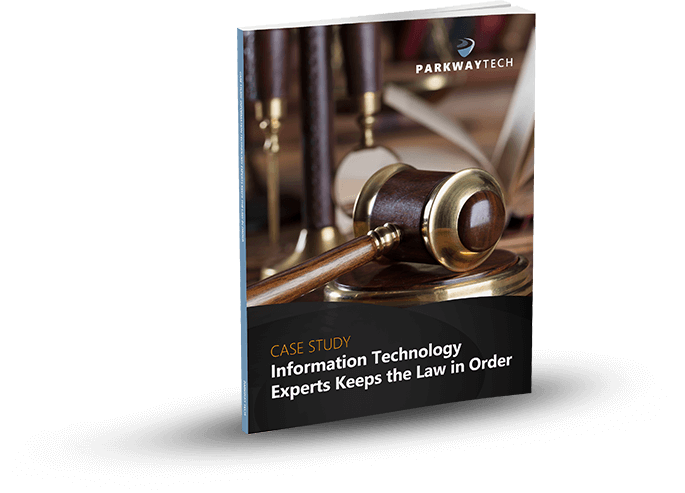Is Your Law Firm In North Carolina Using A Free Cloud-Based Service?
Have you checked your EULAs for any free cloud services you might be using? This is essential to ensure you’re not storing confidential information in a solution that’s not secure.
What Is An EULA?
An EULA is an End-User License Agreement or software license agreement between you (the purchaser) and the licensor (the software company) that defines the ways the software can be used and your rights to use it.
Have You Reviewed EULAs For The Free Cloud-Based Storage Solutions You Use?
Because some of the free storage solutions like DropBox, Google, and others aren’t amenable to your client confidentiality requirements, you shouldn’t use them. Unfortunately, some attorneys still do, and as a result, they’re putting their client data and their law firms at risk.
Why Is The EULA So Important?
As mentioned, you must ensure your end-user license agreement (EULA) for any software you use, (especially free software) is thoroughly checked to make sure confidential information isn’t being stored in the open.
Parkway Technology Solutions recommends that our clients, especially those in the legal field, use cloud-based storage solutions that are paid for (like Microsoft Office 365 or paid versions of G-Suite Services) that state under their terms of service that any mining of data is protected.
Beware Of Free Dropbox For Lawyers
Dropbox for Lawyers has free and paid accounts. Some have signed up for the free service because they get 2.5 gigabytes of space at no cost and an option to get more space if they refer a new account holder. Plus, they can upload and even share files through the free account. This sounds like a good deal, but it’s not if your confidential data is at risk.
Do Your Homework
When looking for a cloud-based solution for your document storage and collaboration needs, make sure that you do your research and consider how the available options will affect your clients’ confidentiality.
While you might think the free version of Dropbox for Lawyers gives you a quick, no-cost solution to upload and store files, it could end up costing you in fines and legal fees when your clients and regulatory authorities find that data was breached.
Plus Dropbox for Lawyers can cause serious issues when it comes to the precise level of document management needed in the legal industry. Between ethics and organization, none of the no-cost solutions should be your law firm’s go-to answer for cloud-based collaboration and storage.
What Should You Look For In A Cloud-Based Solution?
Other than an EULA that guarantees the security of your confidential data, look for a cloud-based solution with law firms in mind. One that:
- Uses at least 256-bit AES encryption to secure your files.
- Provides In-transit encryption, so your files remain encrypted while being uploaded to the Internet or downloaded to your computers.
- Uses Zero-knowledge encryption where only you have access to your encryption keys. Your cloud provider shouldn’t have access to them, and the keys shouldn’t be stored on their servers.
- Is HIPAA compliant if you work for doctors or healthcare organizations.
- Integrates with Microsoft Office so you can save your documents directly to the Cloud.
- Provides indexing and search capabilities where you can find names and content in every document, as well as emails.
- Has the ability to compare older documents to its newer counterparts.
- Lets your employees check-in and check-out of documents to ensure only those authorized can access records, that you know when they do, and that they are working on the most updated versions.
- Has a system for document tagging and profiling.
- Provides notifications when documents are updated or edited.
- Offers document organization and storage that can be arranged by matter.
- Has easy-to-use email management and search options.
- Comes with an interface that’s intuitive and easy for your staff to use.
- Is compatible with the other systems you use.
- Provides customer service that’s readily available.
Can You Use Any Of The Free Software Services?
You can use Google’s free services to write blog posts, create and update website information, and for operations where confidential data isn’t included. There are some great tools in the Google Suite, but using them for anything related to sensitive client data is not recommended.
Questions?
We urge our legal clients (actually all of our clients) who work with or store confidential data to always check the EULAs in the software they use to ensure sensitive data won’t be exposed. If you aren’t sure and need help doing this, contact the team at Parkway Technology Solutions. We’re always happy to help.
In the meantime, be sure to stay up-to-date on Legal IT issues. Visit our Law Blog. Here are a few examples of what you’ll find:
IT Issues Winston Salem Lawyers Would Rather Avoid (Problems and Solutions)
What Should Law Firm IT Services Include? (Questions/Answers)
Can Your Legal IT Services Firm Keep Law & Order With Your Practice’s Technology?

Learn how Parkway’s Legal IT Services helps firms across North Carolina achieve better results.
Click Here
Download Our Free Report



